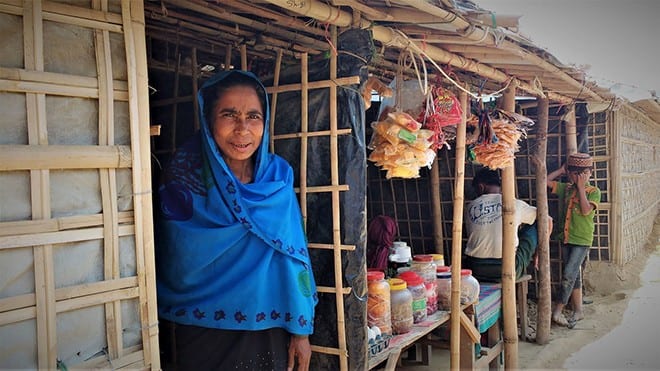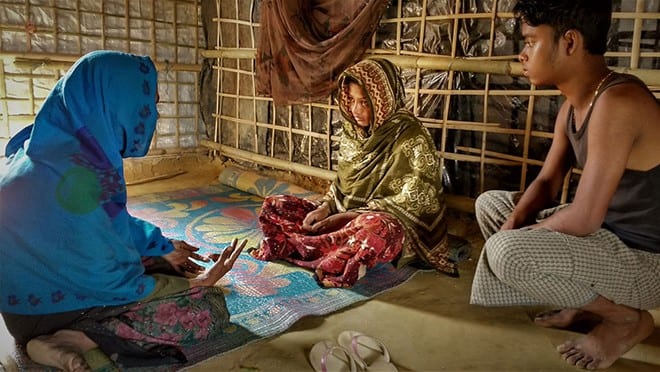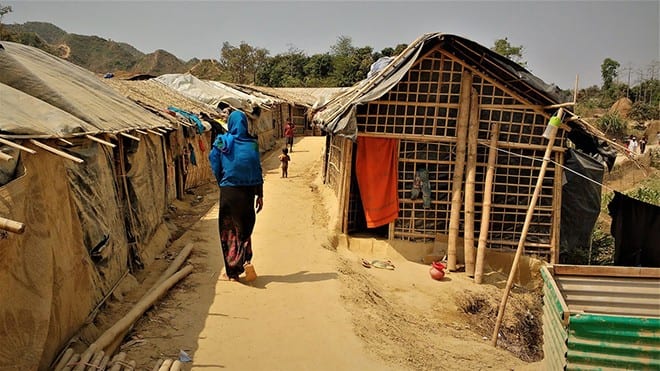Heavy rains that struck Mandalay and Sagaing – the epicenter of the recent earthquake in Myanmar – at the weekend have further complicated the humanitarian situation. The existing lack of sanitation and clean water is now increasing the risk of waterborne diseases, said Oxfam today.
Rajan Khosla, Oxfam in Myanmar Country Director, said:
“The recent heavy rains have added to the challenges faced by the survivors of this earthquake, further affecting those who are already struggling. Hundreds of thousands of people are seeking shelter in temporary accommodations or in open areas, with limited access to clean water and proper sanitation.”
The destruction of roads and bridges, together with the disruption in telecommunications have already slowed rescue and relief operations over the past week. Millions of people in hardest-hit areas remain with limited access to electricity, clean water and sanitation, and essential services.
The 7.7-magnitude quake – the worst to hit Myanmar in decades – has left a trail of devastation, particularly in the regions of Mandalay, Sagaing, parts of Shan, and Nay Pyi Taw.
The UN has estimated that the earthquake has affected more than 17 million people across 57 of the country’s 330 townships. Over 3,400 people have been announced dead and thousands more injured, and the number is still rising.
Oxfam’s team was among the first to reach the hardest-hit areas, providing lifesaving supplies to prevent the outbreak of disease, particularly acute watery diarrhea. Together with our partners, Oxfam is providing people in shelters with lifesaving water, sanitation and hygiene kits, blankets, mosquito nets and other essential supplies.
Oxfam’s Water, Sanitation and Hygiene expert in Mandalay, said:
“Heavy rains flooded drains, polluting the environment and increasing public health risks including diarrhoea due to flies and insects. Many camps lack proper latrines, forcing people to dispose of human waste without adequate sanitation.” He added, “there are significant hygiene challenges for the camp population, as food is cooked outdoors, making it difficult to prepare meals after rain. This increases the risk of contamination and the spread of diseases.”
Myanmar was already reeling from a severe humanitarian crisis, with almost 20 million people – a third of the population –needing humanitarian assistance. The situation is now catastrophic. But despite the scale of need, the country remains one of the world’s most underfunded humanitarian crises. Less than 40 percent of the UN Humanitarian appeal for Myanmar was met last year.
Rajan said: “This tragedy underscores the need for a coordinated international response and significant support to help Myanmar recover and rebuild. The road to recovery is long, and every contribution can make a significant difference in the lives of those impacted by this devastating earthquake,”
Oxfam is scaling up its response to reach the most vulnerable groups in hardest hit areas, particularly women, children, and people with disability.
//END
Notes to editors
- Oxfam in Myanmar has been working to support communities in Myanmar since 2008, following the devastating Cyclone Nargis in the Delta region. Since then, we have expanded our programmes with the aim of reducing poverty and suffering in Myanmar, working closely with communities and local partners.
- Immediately after the earthquake, Oxfam has mobilized to deliver urgent relief to the hardest hit areas. Together with our partners, our teams have reached thousands of people, particularly in Mandalay and Sagaing, with hygiene and dignity kits, as well as, cooked food, water, mosquito nets and blankets.
Contact information
Rachel Schaevitz at [email protected]








